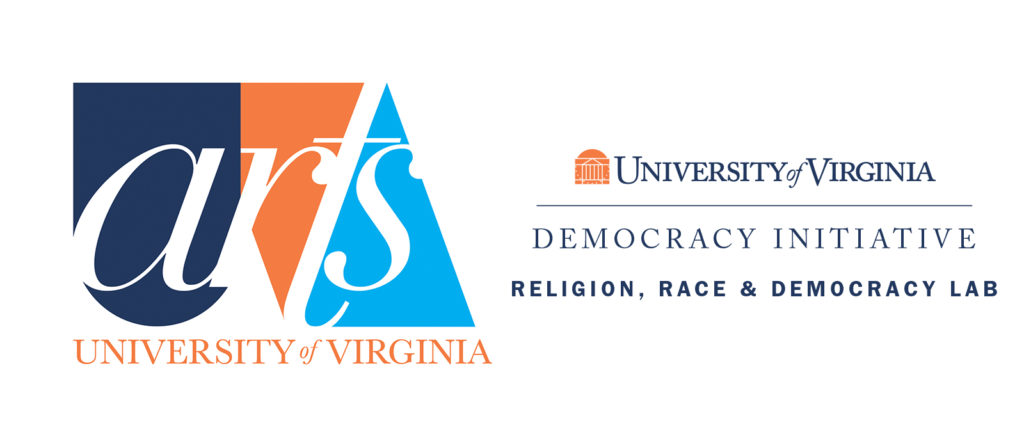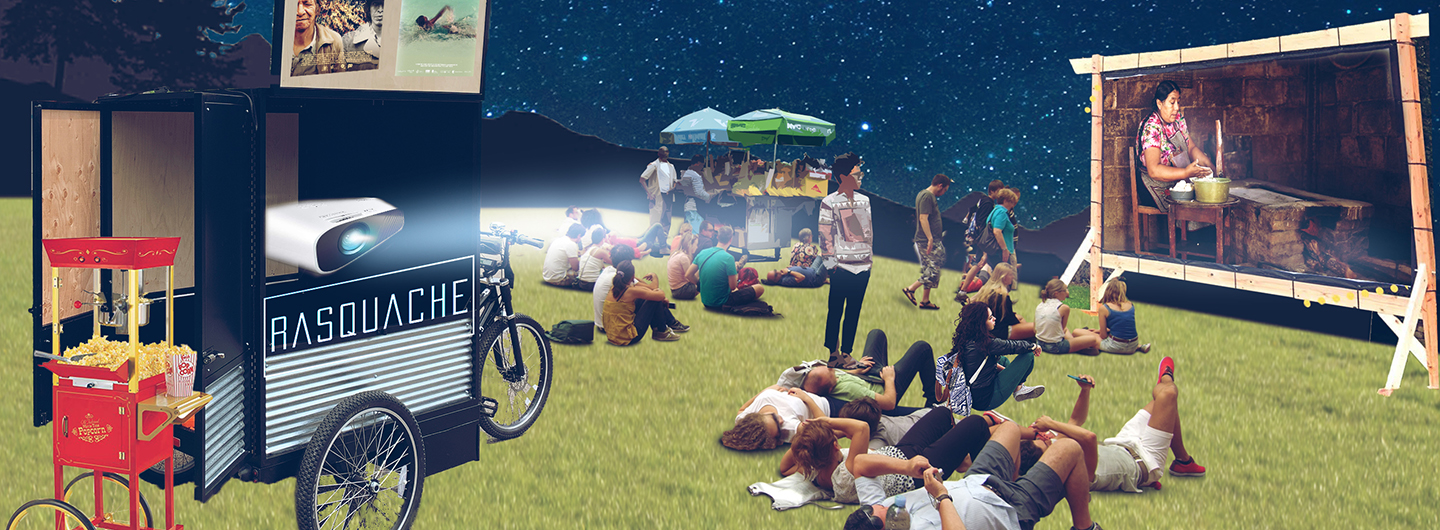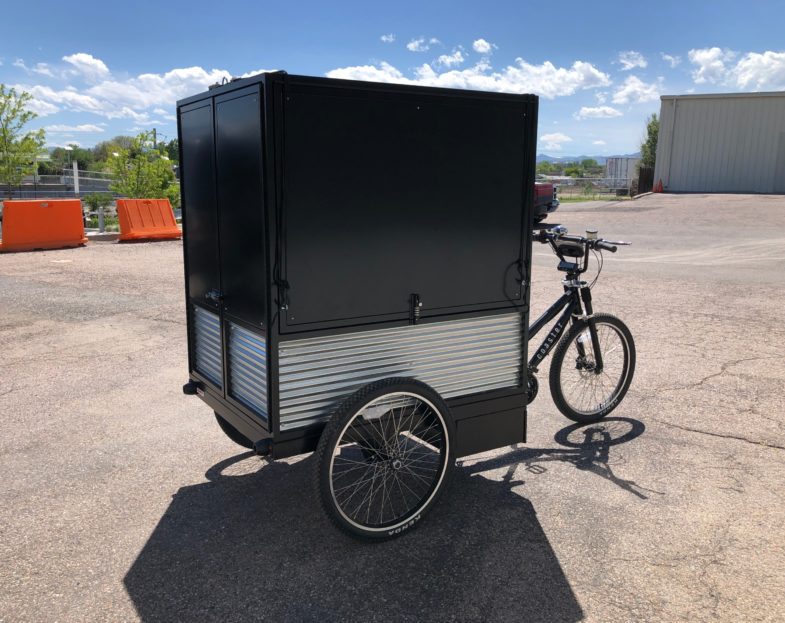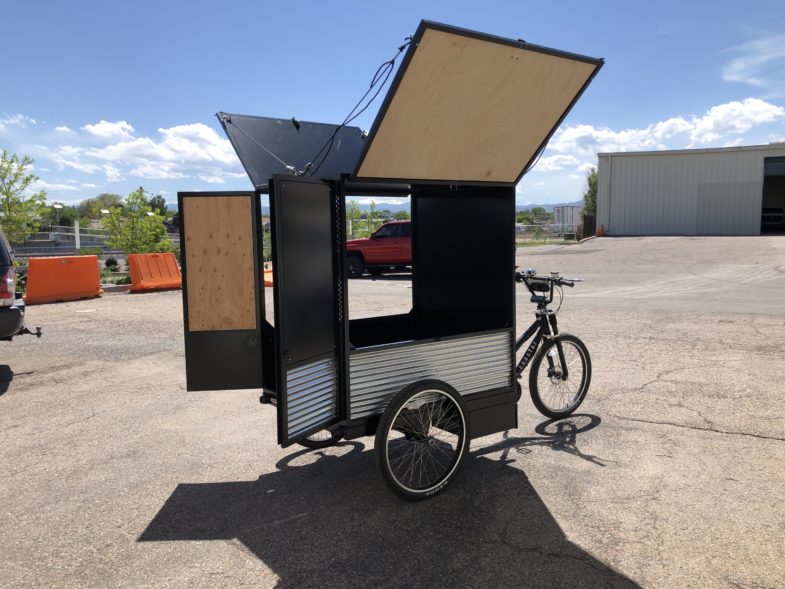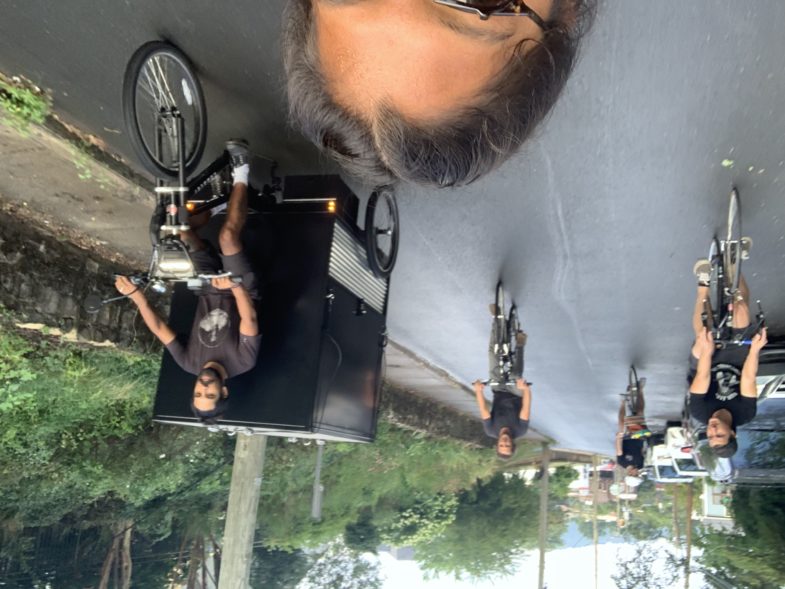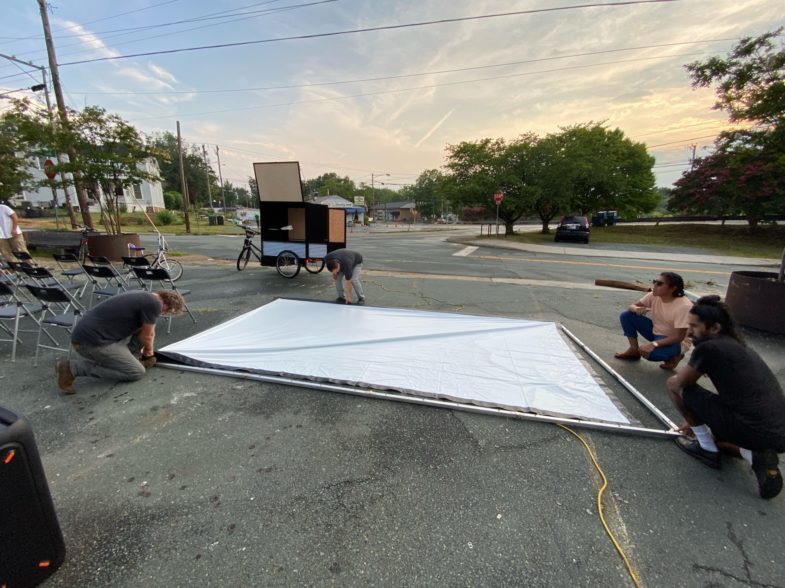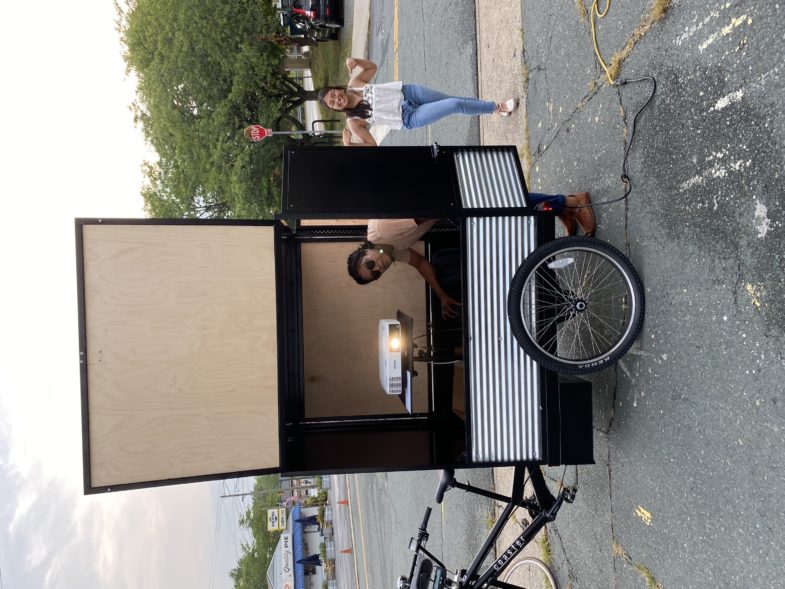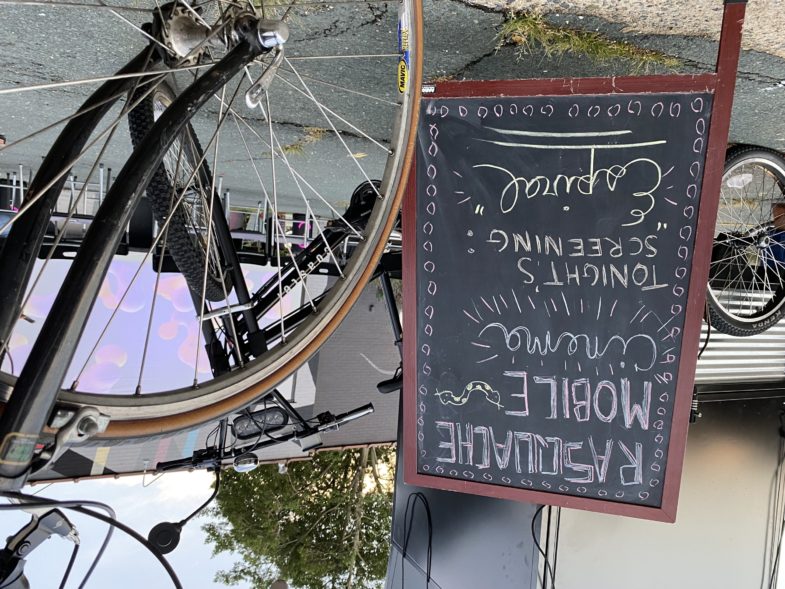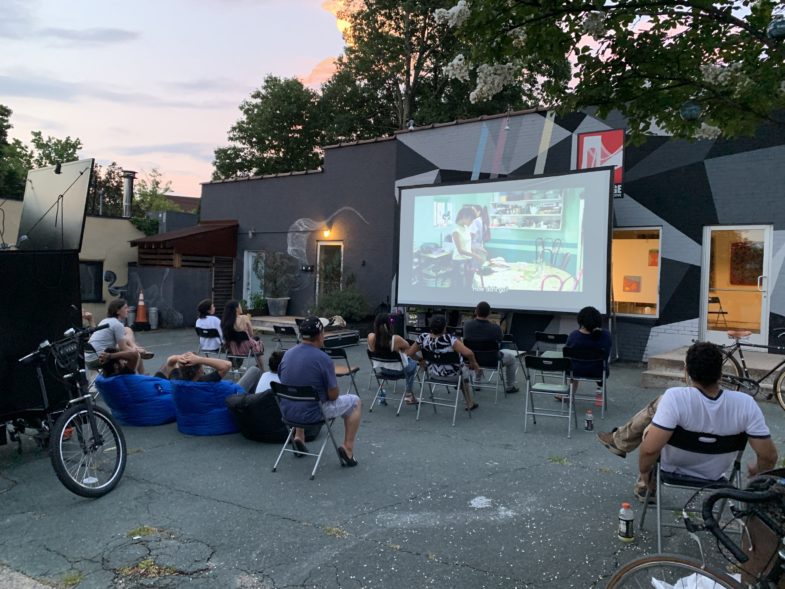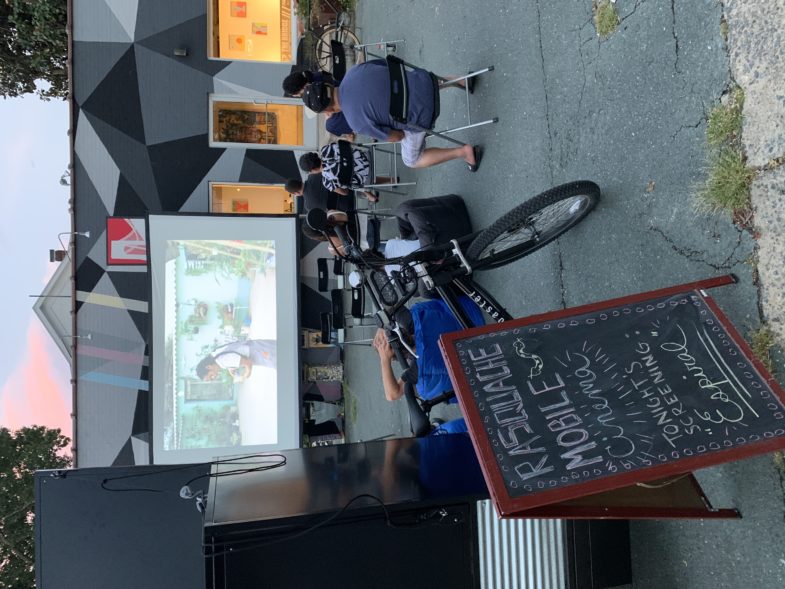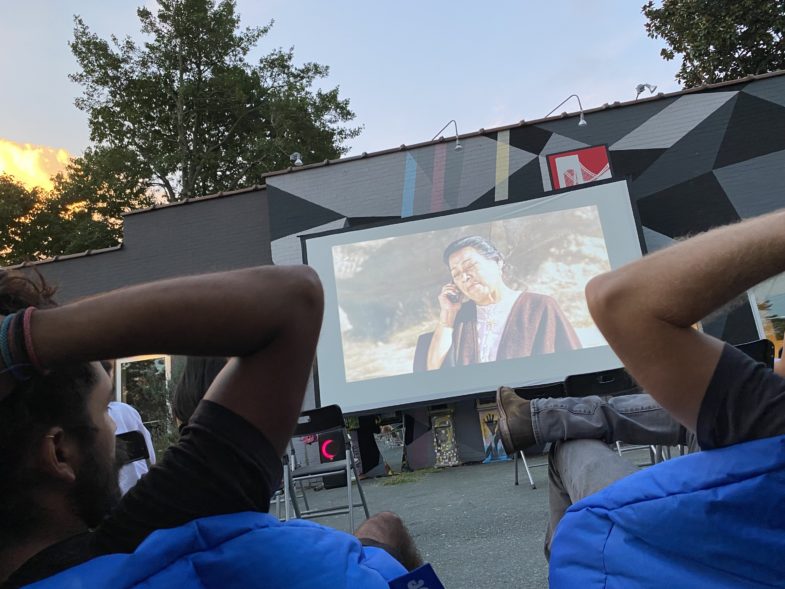Federico Cuatlacuatl, a socially-engaged artist and assistant professor of studio art at the University of Virginia, first conceived of a traveling micro cinema when the pandemic brought a halt to his summer 2020 course, “Pragmatics of Cinema Community Engagement,” slated to be UVA’s first study abroad program in Mexico. Looking for an alternative way to engage UVA students, international filmmakers, and local communities in conversations about race and migration across the U.S. and Mexico border, Cuatlacuatl sought inspiration from mobile film initiatives around the world, including Cinecicleta, a movie-bike that journeys throughout Africa and the audiovisual tricycles of Brazilian duo VJ Suave. The appeal of these projects for Cuatlacuatl is how they democratize cinema—they’re perfect vehicles (pun intended) for community engagement. With help from an Arts Enhancement Grant from the Office of the Provost & the Vice Provost for the Arts, support from the Religion, Race & Democracy Lab, and the fabrication services of BrandFab LLC, Cuatlacuatl’s Rasquache Mobile Cinema was born last spring.
Influenced by the Chicano art movement and the notion of “rasquachismo,” or a spirit of inventiveness from making the most with the least, Cuatlacuatl designed Rasquache Mobile Cinema in a simple, yet engaging way to spark curiosity and welcome participation. The project is primarily focused on screening films depicting Black and Indigenous experiences across the U.S. and Mexico border, as documented by BIPOC filmmakers like Medhin Tewolde Serrano, Jorge Perez Solano, Ebony Bailey, and David Montes Bernal, among others. Rasquache Mobile Cinema is a rare example of a film screening program that exclusively supports early-career, underrepresented artists whose work addresses race and ethnicity in the context of migration at the Mexico and U.S. border. Cuatlacuatl’s near-term goal is to bring these artists to Charlottesville to engage directly with local residents, community organizations, and UVA students and faculty. Ultimately, he’d like to realize another iteration of Rasquache Mobile Cinema in Mexico, and make it the centerpiece of a future UVA study abroad summer course.
Several weeks ago, Rasquache Mobile Cinema took its first test run at The Bridge Progressive Arts Initiative, in Charlottesville, where a small audience of Cuatlacuatl’s friends, family members, and fellow artists watched a dusk screening of Espiral, directed by Jorge Perez Solano. The film tells the story of the men of Huajuán de León Mexico who emigrate to the U.S. without realizing that they are destroying that which they want to save: their families. For Cuatlacuatl, the tale of loss and emotional flux as experienced after emigrating from Mexico to the U.S., is a personal one. Born in Mexico and growing up as an undocumented immigrant in the U.S. holding DACA (Deferred Action for Childhood Arrivals), Cuatlacuatl has built his entire teaching, research, and artistic career exploring the social, political, and cultural realities that Latinx undocumented immigrants face in the U.S. Rasquache Mobile Cinema is Cuatlacuatl’s most recent endeavor in a lineage of other efforts that includes making experimental films, running the Rasquache artist residency program in his hometown of San Francisco Coapan, and leading community-based art workshops in Mexico and the U.S.
This Saturday, September 11th, Rasquache Mobile Cinema will be stationed at Visible Records, a local artist-run gallery and studio space, as part of the closing events for the exhibition Tiahue Tocha (let’s go home), featuring the work of Colectivo Rasquache. For more information about this screening, visit our Upcoming Events page, where we’ll continue to post Rasquache Mobile Cinema screenings happening this fall.
About the Artist
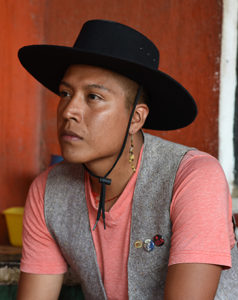 Federico Cuatlacuatl is an Indigenous artist born in Cholula, Puebla, Mexico. He received his MFA specializing in Digital Arts at the Bowling Green State University. Federico’s work is invested in disseminating topics of Latinx immigration, social art practice, and cultural sustainability. Federico’s independent productions have been screened in various national and international film festivals in Mexico; USA; Canada; Finland; Athens, Greece; Delph, England; Lucknow, India; Paris, France; and the Azores Islands off of Portugal. As founder and director of the Rasquache Artist Residency in Puebla, Mexico, he actively stays involved in socially engaged works and binational endeavors.
Federico Cuatlacuatl is an Indigenous artist born in Cholula, Puebla, Mexico. He received his MFA specializing in Digital Arts at the Bowling Green State University. Federico’s work is invested in disseminating topics of Latinx immigration, social art practice, and cultural sustainability. Federico’s independent productions have been screened in various national and international film festivals in Mexico; USA; Canada; Finland; Athens, Greece; Delph, England; Lucknow, India; Paris, France; and the Azores Islands off of Portugal. As founder and director of the Rasquache Artist Residency in Puebla, Mexico, he actively stays involved in socially engaged works and binational endeavors.
Rasquache Mobile Cinema is supported by an Arts Enhancement Grant from the Office of the Provost & the Vice Provost for the Arts, with additional support from the Religion, Race & Democracy Lab.
